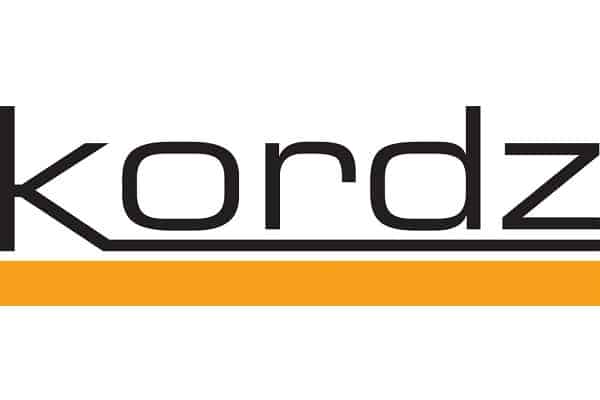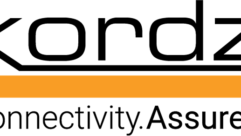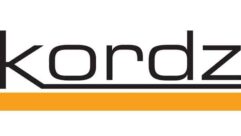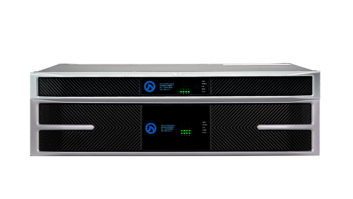
It takes a special breed of person to become a CEDIA Fellow—passion for an industry that tends to be a moving target, a knack for speaking the language of many types of contractors (integrators, designers, architects etc.), bravery for exploring new avenues of innovation, and an innate business sense of where the market is heading and how to align with those changes. James Chen, managing director at Kordz, embodies all of these attributes …. and more. Here, James shares a personal glimpse of the experiences that paved the way to a career in the cabling business and the remarkable impact he sees cabling having on the future of technology.
Q: Have you always had an interest in AV? Was there something in your upbringing that influenced your interest in it?
James Chen: My father was a chemical engineer and fostered in me a knack for maths, physics and science. My mother, an opera singer, encouraged me to study music and the arts from an early age, which helped me develop a keen ear. Together, these early influences contributed to an interest in AV systems. One of my first jobs as a young adult, at Carlton Audio Visual, gave me a chance to experiment with AV gear, which instilled an appreciation for quality audio equipment.
Q: What compelled you to get into AV and later to help pioneer a new generation of cabling?
JC: I think every good story and piece of music deserves to be told and reproduced honestly and truthfully, and as I learned at Carlton Audio Visual, without good cabling a great story can lose impact. Plus, I had experienced my fair share of frustrations dealing with rigid cabling, loose connectors and the many other challenges of AV integration. I discovered better cabling could minimise loss and maintain the signal chain and knew I could drive true innovation in this area. When I was offered a job at Kordz, this was my chance to develop a new generation of cabling—a solution that could both preserve the integrity of audio signals and simplify installation.
Cables are the arteries of any system, and yet their importance is often eclipsed by shiny boxes. They are the longest part of the connectivity chain and vital to ensuring security and reliability. Without quality cables, nothing works. No power, no signal. This is the basis of Kordz’ product engineering.” James Chen, Managing Director, Kordz
Q: What fundamentally excites you about the AV business and the cabling business?
JC: The AV industry is dynamic and in a state of constant evolution. Although that’s exciting, the fast pace can lead to confusion around the choice and installation of products. By working with AV-focused organizations like CEDIA and continually striving to provide the integration community with the best-quality cabling possible, Kordz is providing systems technicians with the clarity and connectivity required to confidently and successfully deploy reliable, long-lasting, high-performance cabling infrastructures.
Q: How does your enthusiasm and dedication to the success of your integration partners reflect in Kordz’ business strategies and the design and manufacture of its cabling solutions?
JC: Quality cable backed by a quality installation sets the rock-solid foundation homes and businesses need to stand the test of time and stay ahead of the technological curve. While some technologies come and go, with the right cabling backbone, a building can handle the connectivity needs of anything that comes its way for decades to come. At Kordz, as former experienced integrators we understand the inherent limitations of Wi-Fi as a networking solution, we recognise the differences between mediocre and high-performance cabling, and we know what it takes to execute a solid, reliable networking foundation because we’ve been there. We’ve applied what we’ve learned, what we know, and what we believe into the Kordz product line.
Q: Can you relay a few experiences in the field that helped shape Kordz’ business philosophies, manufacturing processes and marketing strategies?
JC: Let’s face it, there are way too many cable brands, many of which emphasise somewhat esoteric advantages: visual appeal, product selection, price, or somewhat unscientific or unmeasurable performance. It can be difficult as a professional to find reliable and trustworthy brands that know what you want and have done the legwork to make exactly what you need, so you don’t have to overthink it. What’s been missing is a focus on professional-grade quality and performance, which presented an opportunity for Kordz. So I thought, what if we could make cabling products that worked every time and with very specific scientific and measurable outcomes?
First, Kordz products undergo comprehensive, detailed testing to meet a minimum measurable and guaranteed performance level. Next, there’s certification—bandwidth capacity, fire resistance and compliance with the latest industry standards, to name a few. Materials make a difference too, so resilience, durability, flexibility, purity and pull tolerance are part of the cabling composition.
At Kordz, we also insist on using advanced manufacturing techniques and high-grade machinery. We balance our machines to prevent vibration inconsistencies and ensure tooling accuracy and cycle rates. Additionally, we employ infrared soldering to ensure low heat, equal and repeatable joins and specialised vacuums to remove excess solder. These things all really matter for consistently high quality.
Packaging is another area we continually evaluate, asking ourselves what systems technicians need on the packaging and what it should be made of to lower waste but improve inventory control.
Q: What are key drivers (the market, emerging technologies etc.) in the systems integration industry today, and how does cabling play a role?
JC: We are at the cusp of massive increases in data load. This stems not just from increased resolution and frame rate or colour depth, but also from a huge increase in the sheer number of devices and sensors. AGI, Blockchain and more complex timed security protocols will further intensify demand with short response times. With the requirements for instant or fast reaction times and the massive increase in consumption, cables are definitely here to stay, and actually, more important than ever to keep our modern world turning.
The electrical grid is also becoming more prevalent in cabling discussions. More devices, consuming more power, require more cabling and more power to run them.
Q: What does 2024 hold in store for cabling and what do manufacturers, suppliers and systems technicians need to do to stay a step ahead?
JC: My advice is that if you think you need it, put it in. If you don’t think you need it, put it in anyway, especially in all the hard-to-reach places. Cabling doesn’t cost a lot to install during framing but it costs time, money, hassle and many swear words afterwards from both the person retrofitting it and the person paying for it. The AV industry is on a precipice of monumental change, where the lines of technology and reality blur into one. This watershed moment can only happen when the technology is supported by a robust and reliable cabling infrastructure and connectivity. One that anticipates and transcends the many interoperability challenges bound to arise.
I am excited to be able to participate at this level of immersive connectivity. There is a lot to do and contribute during this pivotal time in our evolution.
To learn more about Kordz and its broad range of industry-leading and award-winning connectivity solutions, please check out our range.
For more industry insights from James Chen on technology, design and their human interface, follow him on LinkedIn.
(sidebar Tips for Systems Technicians)
Q: What do you think needs to happen to draw attention to the importance of cabling – more education and training, better manufacturing processes, small changes in the design that make a big difference?
JC: Better education about the importance of high-quality cabling to the performance of emerging technologies will help technicians on the job. So, too, will learning from experience. When projects go wrong, it helps technicians identify the specific limitations of poor-quality cabling and motivates them to understand the science and look for better solutions. The quest for greater connectivity reliability is also driving demand for proper infrastructures that are well engineered, certified and capable of supporting the growing number of connected devices.
“It’s about working smarter, not harder, and doing things right the first time, so they last the test of time.” – James Chen
Q: What are some ways technicians can do a better job of promoting the importance of cabling to their customers and how can manufacturers help them drive greater appreciation and understanding among their clientele?
JC: Technicians need to partner with a cable supplier that knows what they’re talking about and supports them with great products and guidance – not only about installation best practice but also how to prepare their businesses for technological advancements. It’s about working smarter, not harder, and doing things right the first time, so they last the test of time. At Kordz, we are continually working on bringing out tools and handy reference information that makes this easier for our customers.







